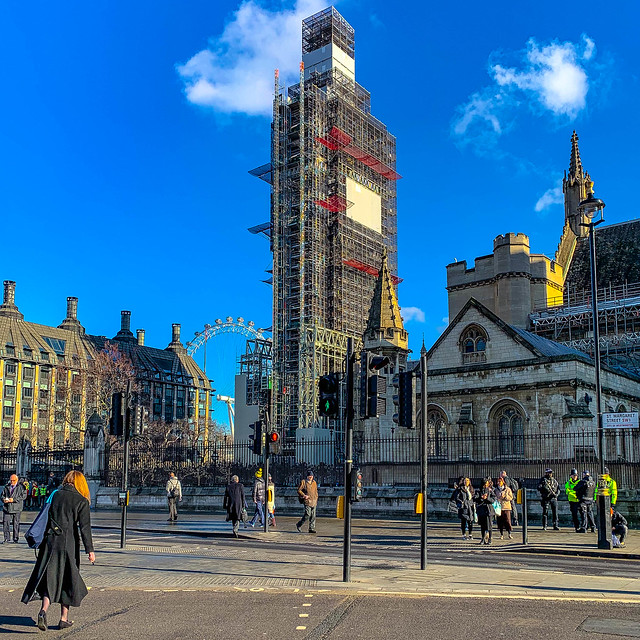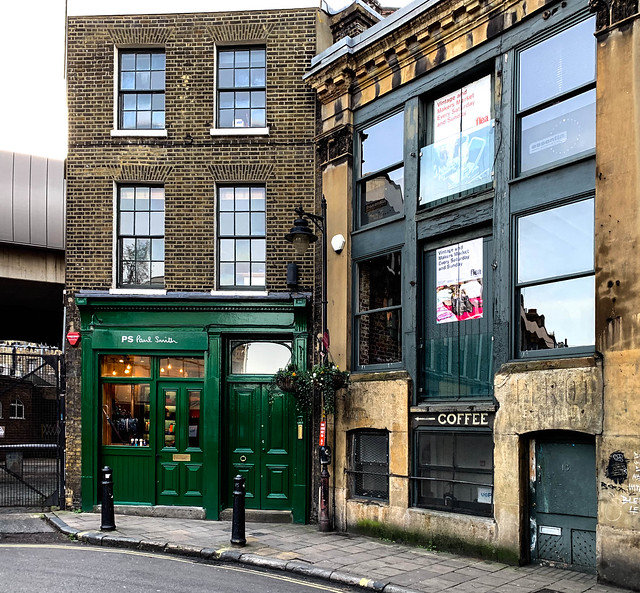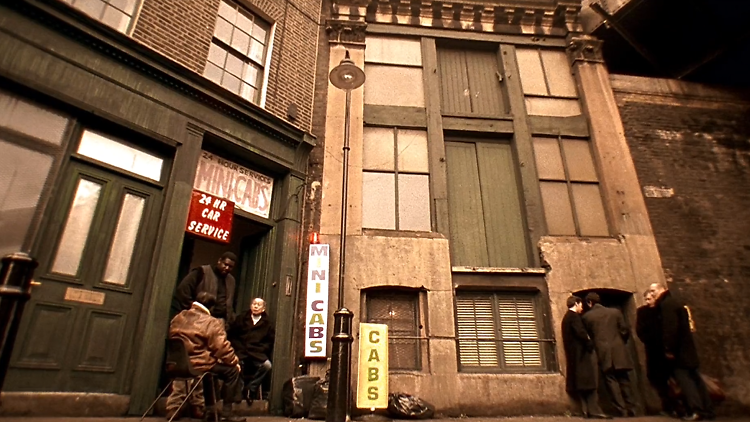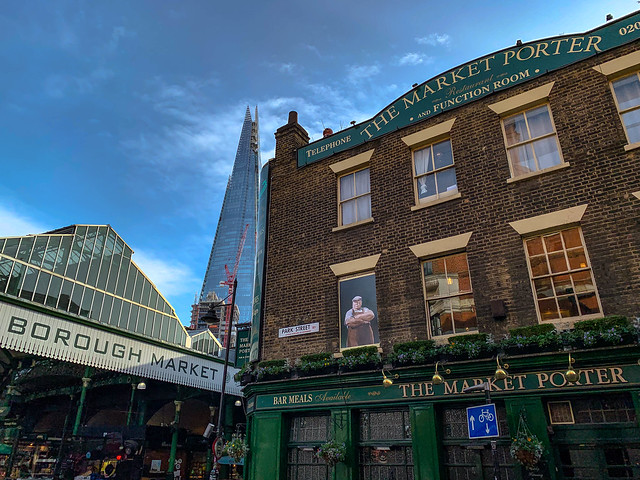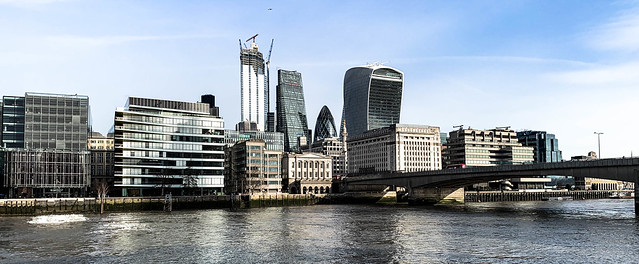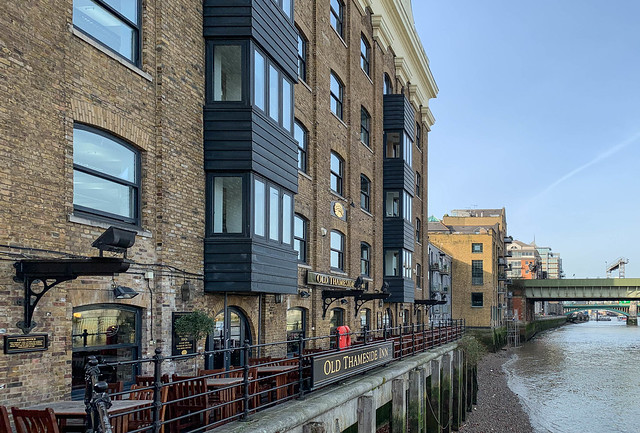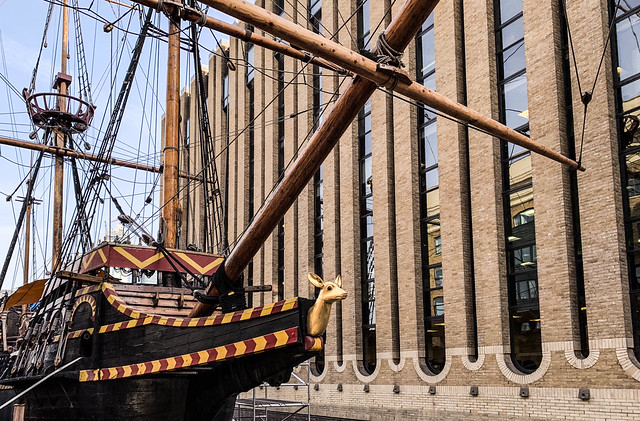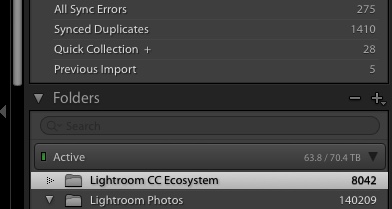
I've been to several 'two works' exhibitions around various galleries, including some delightful juxtapositions at the Tate. This time it was 'Life, Death, Rebirth' featuring Michelangelo and Bill Viola, at the Royal Academy. I'll admit I was somewhat baffled.
The introduction runs that Bill Viola looked at some interesting works by Michelangelo Buonarroti, owned by the Queen and on show a couple of years ago in Windsor. It evolved into a show based upon the inspiration they provided.
I can understand the pitch to the Royal Academy, to put the results together with the original inspirations, but I don't think it really works for me. Who is this show about? One or both artists? Maybe I should have twigged it from the billing on the poster?

Many of the Michelangelo drawings are small chalk sketches, immaculately executed and often at sub A4 size requiring close scrutiny to admire their beauty and precision.
Bill Viola's works are mainly huge flat screen video installations, hung in darkened rooms. They frequently deploy slow motion capture of the human form, often linked with water. An early piece in the show is that of a male form, initially submerged and then slowly moving to the surface of water before once again sinking. It's called The Messenger. I think I understand it, and its link with the theme of life and death.
Viola is world renowned. He's been producing video artworks for 40 years, often with contemplative life learning themes, frequently with slow motion water and/or fire in the mix. In a way, the modern world has caught up, or even overtaken, some of his means of production. Drive into London along the elevated section of the A4 and there's plenty of eye catching large, flat screen television to examine. Oh yes, it's advertising, but with huge marketing budgets. Shouting out - yes you are stuck in traffic so why not look at this glittering new mobile phone/airline/ikea flat pack.
It makes this show something of a problem for me. I can't help thinking that Michelangelo's genius gets hijacked by the brashness of the American television. I want to know whether Viola is trading on fame by association. "Look, I'm here with Michelangelo."
There must be more to it than that, surely?
As an example, there's a darkened room with a three screen installation of birth, swimming through life and death. It's called the Nantes Tryptych. For Viola, it is presumably both personal and voyeuristic.
I watched the busy room and the people's faces. They almost all faced towards the birth frames. Almost no-one noticed that the same room also featured on the opposite wall behind the viewers is Michelangelo's Taddei Tondo, a marble sculpture depiction of a baby Christ avoiding the delicate goldfinch offered by John the Baptist. Perhaps that siting creates a form of performance art in itself?

Maybe I'm not giving the Viola works their due. Perhaps I should dwell longer on each piece. That's also a problem because the exhibition becomes about the 12 Viola works at the expense of the 15 Michelangelos. I can't help wondering whether this is the wrong way around, although perhaps that is what the curator wants? To show us that we need to think about big themes in a modern idiom.
Another work that gave me a challenge is called The Veiling and uses old-school Barco projectors to shoot a couple of scenes through multiple layers of a translucent cloth. The curation makes it difficult to see directly through the layers, to see where the images collide and the effects introduced. This idea (from 1996) might be a clever, but it is difficult to tell. But, ahah, is this the essence of consciousness?
Viewing this, my head went to another altogether different installation, by Fabrice Hyber, which I saw at the Baltic a few years ago. Simply called Raw Materials, as a small section of a much larger show, it used a large series of hung sheets to give early representations for new work.

That's when something occurred to me about this RA exhibition. It felt as if Michelangelo had explored and created ideas. Viola had captured a few and was replaying them in a modern and somewhat repetitive way through 20th Century technology. Michelangelo and - dare I say - Fabrice Hyber both have many more ideas per exhibit than I felt I was getting from Viola.
It was to the extent that I wondered what it would be like to simply project some of the small Michelangelo chalk sketches onto the big screens?

I wondered too about whether the Viola pieces would work better alone or in a different setting?
I'd seen one of the pieces before at the National Portrait Gallery, a few years ago. Called The Dreamers, it was seven big screen hyperreal closeups of fully clothed people under water. With closed eyes they are calm, rather than anxious with occasional (slow motion?) bubbles escaping from their faces as evidence of life. The first time I saw it, it made an impact, maybe because it was unexpected in a run of other artists' work.

I hope from this description it can be construed that I've been trying to understand the show. Take the still above, a frame of another body moving slowly through a tank of well-lit water. I'll admit that this one was quite impactful for me. Above head height, it initially looked like something you wouldn't believe.
Attack ships on fire off the shoulder of Orion, or c-beams glittering in the dark near the Tannhäuser Gate. Riding test boats off the black galaxies then seeing them burn like a match and disappear. Moments lost in time, like tears in rain.

There's a TV show about Bill Viola that I recorded a yesterday but haven't watched yet. Perhaps when I do things will become clearer.



























